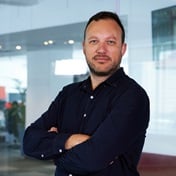Former US president Barack Obama has posed three timely challenges to South Africa and the world for democracy to survive.
1. Reduce inequality and curb crude capitalism.
2. Treat every person, irrespective of race or orientation, with humanity and dignity.
3. Live democracy. Elections alone are not enough to safeguard the rights of individuals and minorities.
In a rousing lecture to celebrate the centenary of former president Nelson Mandela's birth, Obama made a desperate plea for a return to facts and objective truths.
In a swipe to his successor Donald Trump, who often refers to criticism as "fake news", Obama warned of the dire consequences of an era where social media has contributed to the dissemination of mis- and disinformation.
"Denial of facts is contrary to democracy. In fact, it may undo it," Obama warned.
His message in front of thousands of South Africans at a packed Wanderers cricket stadium in Johannesburg was relevant to a country recovering from the devastating consequences of decades of colonialism and apartheid, and the misrule of the Jacob Zuma administration, marred by corruption and minimal growth.
As the country is grappling with issues of economic transformation, land reform, racial inequality and rampant corruption, Obama's message to South Africa was well timed: if you believe in democracy and freedom, now is the time to stand up for what Mandela fought for.
The alternative is ghastly: a country run by racist, strongmen leaders who do not care about human rights and are only in it for themselves.
Sounds familiar? Obama's speech was full of references to Trump, without mentioning him by name once.
At times, it felt as if Obama was giving South Africa tips how to avoid electing a Trump-like leader. The statesman is obviously very worried about what is unfolding back home.
His message was by no means only applicable to South Africa, but it was appropriate that President Cyril Ramaphosa, who received a hero's welcome from the Joburg faithful, was seated a few metres from Obama as the former president delivered his lecture.
Obama acknowledged that Ramaphosa was "inspiring new hope" in the country.
Ramaphosa is tasked with the heavy burden of restoring South Africa's image globally after the destructive Zuma era that saw democratic institutions being weakened and increasing polarisation between racial groups, stoked by Zuma's supporters locally, in London and Dubai.
Major national challenges like rampant crime, economic transformation and land reform have been turned into racial battlefields by organisations like the EFF, AfriForum and the BLF, with the ANC often being absent from or impotent in these discussions.
Obama was unapologetic in his approach to this: real democrats surround themselves with people who differ from them. You dare not tell people who do not look like you to shut up. Mandela learned Afrikaans to engage his adversaries. Learn to listen and partake in serious democratic debate.
A strong advocate for a free market economy that champions "inclusive capitalism", Obama had harsh words for a new era of elitists who do not believe in the idea of nation states and increasingly live their lives detached from the wellbeing of countries.
They are continuously looking for ways to avoid paying taxes, assisted by accountants and lawyers. The global economic crisis of 2008 contributed substantially to a "backlash" against globalisation that brought and era of "the politics of fear and resentment" – another reference to his successor.
The world – South Africa included – was at a crossroads, Obama said. To either give in to the politics of fear, in which strongmen sacrifice democratic principles for profit and civil war is unavoidable, or to go the way of Mandela, Gandhi, King and Lincoln – "where all people are equal".
Democracy was messy, but "we have no choice but to move forward," Obama said as he listed the human and geo-political advancements made since the Berlin wall fell and Mandela's release in the early 1990s.
South Africa has been warned. It's now up to us – Ramaphosa included – to heed his call or face the consequences.




 Publications
Publications
 Partners
Partners






















